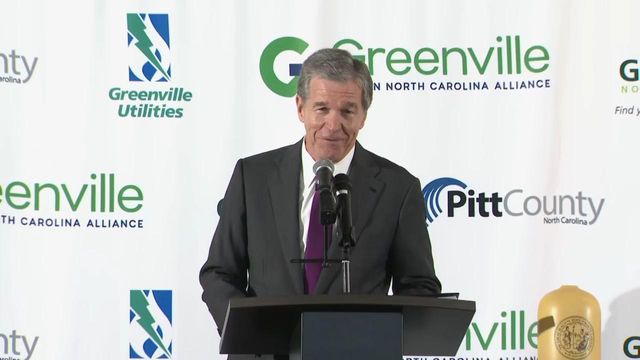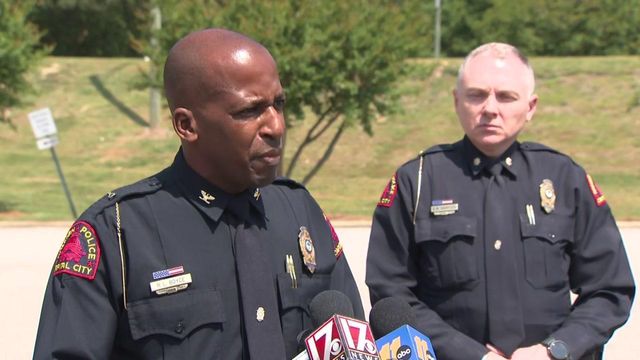Lottery officials: New games would bring in more money

North Carolina could collect more money through the state-run lottery if it expanded the number of games offered, Lottery Director Alice Garland told lawmakers Thursday. But such a move would likely have to wait until next year and would have to get past a sizable cadre of conservatives deeply suspicious of any move to expand the games.
"If that's a source of revenue other legislators want to pursue, that's out there," Rep. Jason Saine, R-Lincoln, said after the meeting, adding quickly that legislative leaders have not discussed such a move.
The General Assembly created the lottery in 2005, and it went into operation the following year. Between scratch-off tickets, state-run draw games and two multi-state drawing games, the lottery estimates it will sell $2 billion in lottery tickets during the fiscal year that ends in June. Of that, $529 million will go toward education. The current state budget sets aside $8.5 billion for K-12 education, with another $3.8 billion in taxpayer dollars going toward the University of North Carolina and community college systems.
Garland said the lottery is in the midst of installing a new computer system to run all of its games, a process that takes months. That means any major new expansion would be unlikely to start until 2017, at the earliest.
The most likely way lawmakers could help spur more lottery sales in the short term, she said, would be allowing the game to do more advertising. Currently, the lottery is restricted to spending 1 percent of its annual income on television, radio, Internet, billboards and the like. Raising the threshold to 1.25 percent, or an extra $5 million, could generate another $18.6 million revenue that would go toward education.
Under the current restrictions, Garland said, the lottery cannot advertise year round for either its scratch-off games or draw games. "Beneficiary messaging," ads that detail where the lottery money goes, is also limited.
"There is a great deal of confusion among citizens of North Carolina about exactly where beneficiary dollars go," Garland said.
Some lawmakers are skeptical of any move to raise the cap on advertising, saying they fear it would create more problem gamblers.
"With your extra advertising and extra games, don't you think that will add more to our social services budget?" Rep. Pat Hurley, R-Randolph, asked.
Garland said that the lottery funds problem gambling programs. In the past decade, she said, data doesn't suggest problem gambling has been on the rise in the state.
Rep. Paul "Skip" Stam, R-Wake, spent 10 minutes at the end of the meeting lambasting the lottery's approach to advertising, saying that virtually all lottery ads are designed to "induce" more players, which would be contrary to state law.
Garland said that her agency spends a lot of time trying to figure out what does and does not count as inducement.
Pondering Keno, video lottery terminals
Lawmakers had asked Garland to speak about ways the lottery could expand its offerings and raise more revenue.
She said there are no plans to expand at the moment but added that current law would allow the state to add Keno and iLottery.
Keno is a draw game that players typically find in bars or convenience stores. Instead of a drawing once a week or once a day, Keno drawings occur every five minutes. By the third year of having Keno in place, she said, the lottery could be earning $156 million more every year, of which $30 million more would be added to the education budget.
In the case of iLottery sales, Garland said, the lottery would not be adding new games but allowing players to buy tickets online and through their mobile devices.
"It would be a way to reach the 34-and-under (players) who think the lottery today is their grandparents' lottery. It would be a way to reach that new audience," she said.
The biggest potential bump to lottery revenue, she said, would come from adding video lottery terminals, or VLTs. But lawmakers would need to authorize those games.
VLTs offer player interactive games. They are similar to video poker or video sweepstakes machines, both of which are illegal in North Carolina.
Oregon, which has less than half the population of North Carolina, earns $789 million off of VLTs.
But lawmakers who worked to stamp out sweepstakes and video poker did not seem eager to open up a state-run version of those games.
"What is the difference between the state doing video poker and the private sector doing video poker?" asked Rep. Nelson Dollar, R-Wake.
Garland said the state-run game would be better regulated and more closely overseen.
"There's regulation, there's security, there's integrity, there's reporting and there's responsible gaming," she said.
Dollar followed up, "Why wouldn't we just say, 'OK, let's have those things, and let the video gaming people back in the state?'"
Garland said that decision was up to the legislature. Based on reactions from the committee, it seems like a decision legislators are unlikely to make any time soon.
"I can't see it because of how hard we worked to stamp out sweepstakes," Sen. Jerry Tillman, R-Randolph, said after the meeting.
Tillman, who has advocated for loosening the reins on lottery advertising, said he thought legislators would be more likely to embrace something like Keno, calling it "the lesser of two evils."
Lawmakers are scheduled to return to work on April 25.









